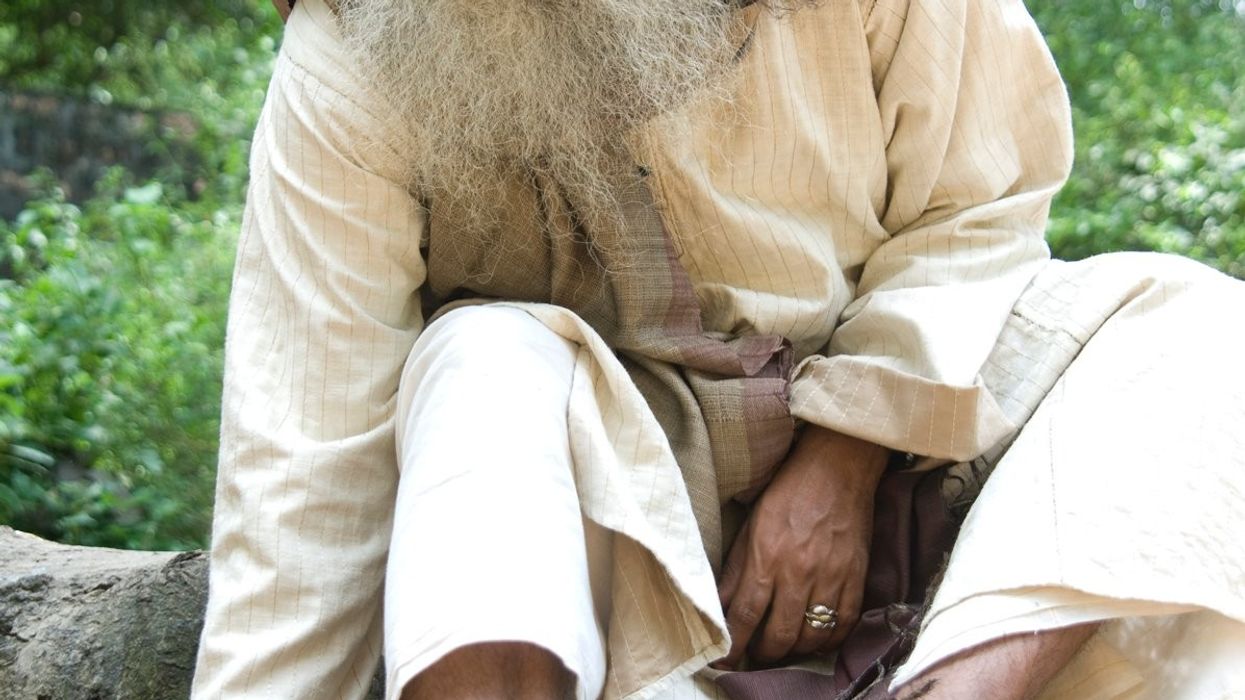SADHGURU: Right now, whatever you call as “myself” is simply a certain type of information in your mind that you have collected.
When you say, “I’m a good person,” “I’m a bad person,” “I am haughty,” “I am meek,” or whatever, these are simply certain formations of the mind. In other words, this is past accumulation – you are simply living through your past. If the past is taken away, most people are just lost. Everything depends on the past for them. The personality belongs to the past. So as long as the personality is important, it simply means the previous moment rules everything. The present moment is no longer important.
The personality that you carry is a dead thing. You cannot walk very far when you carry a dead body over your shoulders. And you can only head towards the burial ground, weighed down by its lifeless mass. If you carry a dead body for too long, you will have to bear with terrible smells. The stronger your personality is, the more odoriferous it is.
You can go far in life only when you can leave your past. This is like a snake shedding its skin. One moment it is a part of the body, the next moment it is shed and the snake goes on without turning back. If every moment, one is like a snake leaving the skin behind, only then there is growth. When a person does not carry the burden of the past, he is a truly sinless person. Being sinless does not mean that he did not do anything with his life. That would mean being a dead person. He did everything a person could possibly do to know life, but his actions never left any residue, nor did he build a personality out of the actions he performed.
Have you heard of Suka? He was Vyasa’s son. Suka was a pure being, a truly sinless being. One day, he was walking by himself in the forest, naked. As he was walking by, there was a lake where a few jala kanyas or nymphs were bathing. As they were by themselves in the forest, all the women were bathing together naked and playing in the water. Suka came upon the lake, looked at them, and just walked by. The women were not ashamed, nor did they try to hide themselves. They just continued their play. Suka walked off.
While looking for Suka, his father Vyasa came after him. He was over seventy years of age, an old man, and a great saint. He also came by the lake while following Suka. When the women saw him, they immediately rushed for their clothes. Vyasa asked them, “I am an old person, and I am dressed properly. Whereas my son is young and naked at that. When he came near you, you were not disturbed, but when I came, you are acting like this. Why?”
They said, “He carries no sexual identification. We did not feel anything. He is just like a child.”
Only that person who does not carry the previous moment to this moment, is free from everything. And that quality will be felt everywhere. Within a few moments of meeting you, people will trust you to the extent that they would not even trust their parents, husbands or wives, simply because you don’t carry the burden of the past with you.
If you carry the past with you, then you also smell like anybody else. The whole world stinks with personalities. Everybody has his own strong smell or personality. These are the various stenches in the world, and they keep clashing all the time. All your anger, hatred, jealousy, fear – everything is based in the past. The moment you carry the past and future, you become a real ass, because the burden is such. There is no way anybody can live his life intelligently carrying that burden.
When one does not carry this odour, one can cross over this existence. This person crosses the ocean of samsara without any struggle or effort. What looks like a great effort for somebody else will be happening for this person without any effort. One not only passes through this world effortlessly, one will pass through the very process of life and death effortlessly.
Ranked among the 50 most influential people in India, Sadhguru is a yogi, mystic, visionary and a New York Times bestselling author. He was conferred the Padma Vibhushan by the Indian government in 2017, the highest annual civilian award, accorded for exceptional and distinguished service. He is also the founder of the world’s largest people’s movement, Conscious Planet – Save Soil, which has touched more than 3.9 billion people.




